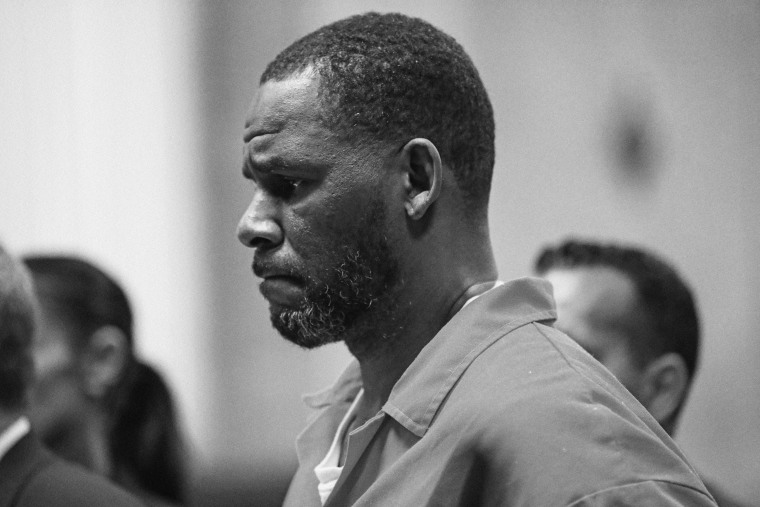R. Kelly, the R&B singer who has long faced allegations of sexual abuse, will appear in a Brooklyn courthouse Wednesday for the second week of a high-profile federal sex trafficking trial.
The singer’s alleged pattern of abuse drew intense public scrutiny with the rise of the #MeToo movement, leading to the #MuteRKelly social media campaign, boycotts of his hit records, protests across the country and, perhaps most notably, “Surviving R. Kelly,” a Lifetime documentary series featuring testimony from several accusers.
R. Kelly, 54, whose real name is Robert Sylvester Kelly, denies any wrongdoing. He is best known for tracks such as “I Believe I Can Fly” and “Bump N’ Grind.”
The trial’s opening statements are set to begin Wednesday. Here’s a look at what’s at stake.
The charges
R. Kelly was charged in July 2019 with racketeering based on sexual exploitation of children, kidnapping, forced labor and Mann Act violations — charges involving the coercion and transportation of women and girls in interstate commerce to engage in illegal sexual activity, according to a Department of Justice news release.
The singer, his entourage and his employees — managers, bodyguards, drivers, personal assistants, runners for Kelly — allegedly recruited women and girls to engage in illegal sexual activity with him and arranged for victims to travel to concerts and other events across the U.S., according to court documents.
“For two decades the enterprise at the direction of R. Kelly preyed upon young women and teenagers whose dreams of meeting a superstar soon turned into a nightmare of rape, child pornography and forced labor,” Angel M. Melendez, special agent in charge from Homeland Security Investigations, said when the charges were announced.
Federal prosecutors allege that Kelly forced his victims to follow various “rules.” They were not allowed to leave their room without his permission (including to go to the bathroom or eat), and they were required to call him “Daddy,” according to court documents.
The charges involve six women and girls.
The trial in Brooklyn is the second time R. Kelly has been prosecuted. He was acquitted on child pornography charges in 2008, when he was 41.
The defense
R. Kelly, who has been in federal custody since 2019, pleaded not guilty to racketeering, bribery, coercion, enticement and sex trafficking.
He also has pleaded not guilty to sex-related charges in Illinois and Minnesota.
Douglas C. Anton, one of the singer’s lawyers, has blasted the accusers as “disgruntled groupies” who were “dying to be with him” and accused them of coming forward with their allegations to join what he described as the #MeToo “bandwagon.”
“Your Honor, this N.Y. case amounts to nothing more than groupie remorse,” Anton wrote in part in a letter to U.S. District Judge Ann M. Donnelly dated July 30, 2019, according to a public court filings.
The judge
Donnelly was nominated to the U.S. District Court for the Eastern District of New Yorkin January 2015 by President Barack Obama and confirmed by the U.S. Senate that October.
She worked for decades in the Manhattan district attorney’s office, where she successfully prosecuted the security systems company Tyco International in a high-profile corporate fraud case.
Donnelly made national headlines in early 2017 after she blocked part of former President Donald Trump’s ban on refugees and visitors from seven Muslim-majority countries.
The jurors
The jury is made up of seven men and five women. They were selected and sworn in last week, the court said.
Donnelly screened dozens of potential jurors. She asked them if they believed they could stay impartial despite the negative publicity that has trailed R. Kelly since he was arrested in 2019.
The Associated Press reported that some prospective jurors told Donnelly they were aware of the singer mainly because of his 1996 hit “I Believe I Can Fly,” and many reportedly said they knew little — or nothing at all — about the case.
The jury-selection process lasted three days. R. Kelly could be seen on a video feed sitting at the defense table, dressed in a suit and wearing glasses.

